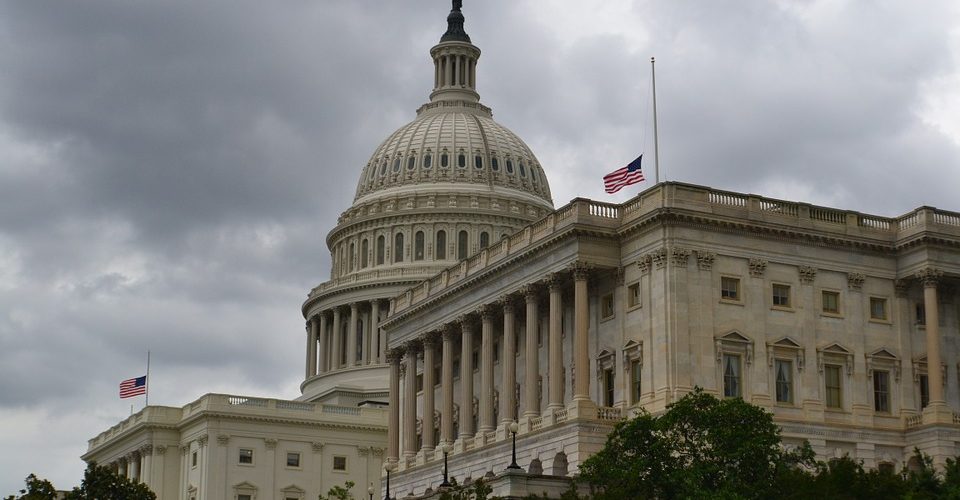Proposed federal legislation that is intended to open up the political process would do just the opposite, hundreds of organizations from trade associations to civil rights groups are telling Congress.
Dubbed the For the People Act 2019, the document is a voluminous 571-page “anti-corruption” bill that takes on a maze of hot button political issues: voting rights, campaign finance, political advertising, gerrymandering, and government corruption in all three branches of government.
The U.S. House passed the bill on March 8. Its stated purpose? To “expand Americans’ access to the ballot box, reduce the influence of big money in politics, and strengthen ethics rules for public servants and for other purposes.”
But this broad overarching document, H.R. 1, contains provisions that threaten the ability of industry and organizations to advocate on their own behalf, says a letter to Congress from more than 300 trade associations and chambers of commerce in 47 states including in Arizona. The Arizona Chamber of Commerce and Industry and 19 other chambers in the state signed the letter.
“This bill does nothing to promote greater political free speech,” Arizona Chamber of Commerce and Industry spokesperson Garrick Taylor said. “As if the world of campaign finance and disclosure rules weren’t complicated enough, along comes H.R. 1 to make things even worse.”
In their letter to Congress, advocacy associations state that the massive H.R. 1 legislation has several serious flaws including violations of the First Amendment. Two measures of top concern are changes to donor disclosure rules and broad prohibition of “coordinated” communications with elected officials.
“Although its supporters focus on aspects of the bill that purport to bring more people into the political process, other parts of the legislation are clearly designed to have precisely the opposite effect — pushing certain voices, representing large segments of the electorate and our economy, out of the political process altogether,” the letter states.
One major worry is a requirement for public disclosure of donors who contribute to political action committees (PACs). Called the DISCLOSE Act 2019, it is similar to legislation ruled unconstitutional in the past, opponents said.
“This resolution would require groups that participate in elections such as chambers and different associations to disclose those donors and member lists whenever we contribute to a campaign or candidate,” said Mike Huckins, vice president of public affairs for the Greater Phoenix Chamber. “That all sounds great and good until you get somebody who doesn’t agree with whatever position the chamber is taking, or disagrees with the candidate we are either backing or opposing, and then all of sudden those members are publicly called out for public shaming.”
Another concern is a broad and vague new definition for prohibited “coordinated” communications that could hamper industry’s ability to make their needs known to elected officials, others said.
“It’s important for businesses to have the ability to let their elected officials know what laws and regulations help or hurt their industries,” said Robert Medler, vice president of public affairs for the Tucson Metro Chamber. “It really becomes a stranglehold if conversations about economic development could be considered illegal under the broad proposal.”
The American Civil Liberties Union (ACLU) agrees. The Supreme Court gives corporations essentially the same powers as citizens, protecting their ability to advocate for their members or constituents.
While the ACLU applauds the bill’s efforts to make voting more accessible, the organization states in a recent letter to Congress that this “would unconstitutionally chill the speech of issue advocacy groups and nonprofits such as the ACLU, Planned Parenthood, or the NRA that is essential to our public discourse and protected by the First Amendment.”
“These groups need the freedom to name candidates when discussing issues like abortion, health care, criminal justice reform, tax reform, and immigration and to urge candidates to take positions on those issues or criticize them for failing to do so,” ACLU states. “The DISCLOSE Act interferes with that ability by impinging on the privacy of donors to these groups, forcing the groups to make a choice: their speech or their donors. Whichever they choose, the First Amendment loses.”
In their letter to Congress, trade associations and chambers listed a number of top concerns including that HR1 would:
- Seek to chill associational and speech rights guaranteed by the First Amendment by threatening donor disclosure by groups engaged in advocacy.
- Deem certain communications “coordinated” with a candidate prohibited so that even the most innocuous and tenuous of connections with an elected official are barred. For example, a meeting with an elected official to discuss a policy issue might be prohibited.
- Transform the Federal Election Commission from a non-partisan agency with three commissioners from both parties into a five-member partisan enforcement tool controlled by a majority of commissioners from whichever political party is in power.
- Usher in a host of onerous disclaimer requirements for those engaging in communications that mention a candidate or elected official, even if those communications are related to legislative issues.
H.R. 1, which passed in the House 234-183, is now in the Senate. There is much doubt that the bill will ever move forward.
While the mission to increase voter access is a worthy goal, the bill would misguidedly shut out many groups from the election process, Taylor said.
“We should be enacting policies that encourage more political speech and engagement, not less,” he said.
To read the letter from business groups to Congress, go to HR1.















Add comment